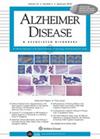Virtual Assessment as a Way to Reduce Help-seeking Barriers in Older Adults With Subjective Cognitive Decline.
IF 1.8
4区 医学
Q3 CLINICAL NEUROLOGY
引用次数: 0
Abstract
Subjective cognitive decline (SCD), a potential early marker for neurodegenerative disease such as Alzheimer's disease, is common among older adults. Although it is often regarded as a personal health concern, most individuals with SCD do not seek help from a health care professional. Help-seeking (HS) is a complex, individualized process with significant life-course implications, and older adults often face several barriers to HS across personal, socioeconomic, and cultural domains. The pandemic exacerbated these barriers by imposing additional limitations on in-person care. In response, virtual assessment became a popular method to conduct remote care. We provide a narrative review of the challenges and triumphs that came with the transition from in-person, pen-paper cognitive assessments to virtual cognitive assessments. In addition, we address the impact virtual assessment had in tackling barriers that previously limited individuals with SCD from formal HS. We argue that virtual cognitive assessment helps alleviate health access barriers to HS (e.g., cost, transportation, and physician availability) and allows individuals with different coping styles to undergo assessment within more convenient environments. We hope the findings presented in this review inform health care practice, public education, and future research targeted towards the use of virtual assessment to facilitate HS in older adults with SCD.虚拟评估是减少老年人主观认知能力下降求助障碍的一种方法。
主观认知能力下降(SCD)是阿尔茨海默病等神经退行性疾病的潜在早期标志,在老年人中很常见。尽管SCD通常被视为个人健康问题,但大多数SCD患者不会向医疗保健专业人员寻求帮助。寻求帮助(HS)是一个复杂的、个性化的过程,具有重大的人生历程意义,老年人在个人、社会经济和文化领域往往面临着HS的几个障碍。新冠疫情对面对面的护理施加了额外的限制,从而加剧了这些障碍。作为回应,虚拟评估成为进行远程护理的一种流行方法。我们对从面对面、纸笔认知评估到虚拟认知评估的转变所带来的挑战和成功进行了叙述性回顾。此外,我们还讨论了虚拟评估在解决以前限制SCD患者进入正式HS的障碍方面所产生的影响。我们认为,虚拟认知评估有助于缓解HS的健康获取障碍(如成本、交通和医生可用性),并允许具有不同应对方式的个人在更方便的环境中接受评估。我们希望这篇综述中的研究结果能为医疗保健实践、公共教育和未来的研究提供信息,这些研究旨在使用虚拟评估来促进患有SCD的老年人的HS。
本文章由计算机程序翻译,如有差异,请以英文原文为准。
求助全文
约1分钟内获得全文
求助全文
来源期刊
CiteScore
3.10
自引率
4.80%
发文量
88
期刊介绍:
Alzheimer Disease & Associated Disorders is a peer-reviewed, multidisciplinary journal directed to an audience of clinicians and researchers, with primary emphasis on Alzheimer disease and associated disorders. The journal publishes original articles emphasizing research in humans including epidemiologic studies, clinical trials and experimental studies, studies of diagnosis and biomarkers, as well as research on the health of persons with dementia and their caregivers. The scientific portion of the journal is augmented by reviews of the current literature, concepts, conjectures, and hypotheses in dementia, brief reports, and letters to the editor.

 求助内容:
求助内容: 应助结果提醒方式:
应助结果提醒方式:


